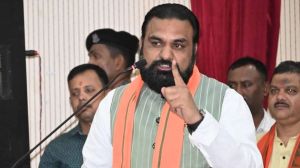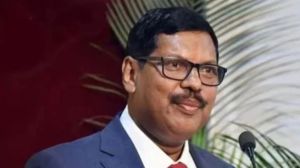Govt move in public interest’
MUMBAI, April 30: The confidential cabinet note which endorsed the withdrawal of criminal cases against Bal Thackeray last year says the de...

MUMBAI, April 30: The confidential cabinet note which endorsed the withdrawal of criminal cases against Bal Thackeray last year says the decision was taken keeping in view the public interest at large. The cabinet’s decision is justified on the grounds that there was no loss of life or public property in these cases.
Justice Srikrishna had marked the note submitted by Chief Minister Manohar Joshi as "exhibit" yesterday, and today it was made available.
The note also observes the decision was taken to ease social tension and create cordial relations between Hindus and Muslims. Though this observation holds water, the view that no loss of public life and property was caused is rendered irrelevant by the fact that Thackeray was chargesheeted for writing communally inflammatory articles. Pursuing cases like these would amount to wasting the time of the government machinery and the police department, the note reads, adding there were numerous such cases pending before the court for several years.
Citing the aforementioned reasons, the state government has invoked Section 321 of the Criminal Procedure Code to withdraw the cases against Thackeray. According to Section 44 1 (A) under clause 166, advice has to be sought from the law and judiciary department before getting the chief minister’s clearance, which is made through the home minister.
In case the law and judiciary department doesn’t agree to the proposal and the government insists that the cases be withdrawn, the issue is presented before the cabinet for clearance under rule 9 set by clause 21 of the second schedule. After obtaining the government’s clearance to withdraw the cases, a similar request is placed before the court.
Since this is only a request, the court has the privilege to accept or reject it. While withdrawing such cases, the general norm adopted is to seek public opinion on whether the demand is legitimate. The government has stated that after considering these issues, it has withdrawn all the cases registered between January 1985 and June 1995 under various sections of the Indian Penal Code, Criminal Procedure Code and Bombay Police Act.
However, it seems the government has treated Thackeray’s cases at par with those registered against students and farmers agitating for issues like price hike and environmental matters. Usually, when these people make demonstrations to draw the government’s attention to their grievances, orders banning the use of loud speakers are implemented and cases are registered against those violating the orders.



- 01
- 02
- 03
- 04
- 05




























